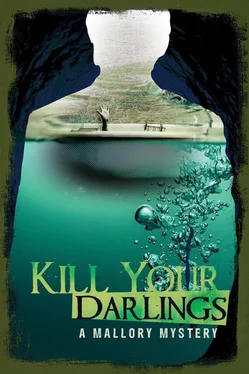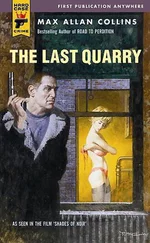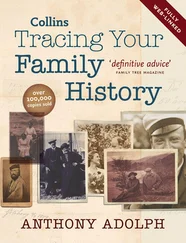Max Collins - Kill Your Darlings
Здесь есть возможность читать онлайн «Max Collins - Kill Your Darlings» весь текст электронной книги совершенно бесплатно (целиком полную версию без сокращений). В некоторых случаях можно слушать аудио, скачать через торрент в формате fb2 и присутствует краткое содержание. Год выпуска: 2012, Издательство: AmazonEncore, Жанр: Криминальный детектив, на английском языке. Описание произведения, (предисловие) а так же отзывы посетителей доступны на портале библиотеки ЛибКат.
- Название:Kill Your Darlings
- Автор:
- Издательство:AmazonEncore
- Жанр:
- Год:2012
- ISBN:нет данных
- Рейтинг книги:4 / 5. Голосов: 1
-
Избранное:Добавить в избранное
- Отзывы:
-
Ваша оценка:
- 80
- 1
- 2
- 3
- 4
- 5
Kill Your Darlings: краткое содержание, описание и аннотация
Предлагаем к чтению аннотацию, описание, краткое содержание или предисловие (зависит от того, что написал сам автор книги «Kill Your Darlings»). Если вы не нашли необходимую информацию о книге — напишите в комментариях, мы постараемся отыскать её.
Kill Your Darlings — читать онлайн бесплатно полную книгу (весь текст) целиком
Ниже представлен текст книги, разбитый по страницам. Система сохранения места последней прочитанной страницы, позволяет с удобством читать онлайн бесплатно книгу «Kill Your Darlings», без необходимости каждый раз заново искать на чём Вы остановились. Поставьте закладку, и сможете в любой момент перейти на страницу, на которой закончили чтение.
Интервал:
Закладка:
Max Allan Collins
Kill Your Darlings
PART ONE
1
Heroes aren’t supposed to die.
But heroes, at least real-life “role model” type heroes (as opposed to such mythic figures as Hercules and Davy Crockett), are human beings; and human beings, even the best of ’em, sooner or later, each and every one, wind up dead.
My hero was dead in a bathtub; drowned, apparently. He’d been drinking heavily, earlier that night. He’d been dead drunk when I walked him up to his hotel room. And now he was just dead.
A few hours before, he’d been vocal-embarrassingly vocal-sitting in the cocktail lounge downstairs. We were in Chicago, in the Americana-Congress Hotel, and it was October.
“There hasn’t been a goddamn mystery writer worth reading since Dashiell Hammett died,” he slurred, at a table of mystery writers. Tomorrow was day one of the Bouchercon, the annual mystery fan convention.
“You’re worth reading,” I ventured, smiling, trying to keep it light.
Roscoe Kane, the shoulders of his plaid shirt flecked with dandruff, his patched brown sports jacket slung sloppily over the back of his chair, looked at me with disgust lining every wrinkle of his basset-hound face, his rheumy china-blue eyes like nasty lasers. The hoarse voice wanted to be contemptuous, but sad self-pity got in the way: “I used to be.”
Across the table from us, Brett Murtz, in faded blue workshirt and jeans, leaned over and gestured, his long curly hair and free-flowing mustache making him look like a hippie Gene Shalit; he had the kind of enthusiasm it took to have driven here from Colorado in a Datsun.
“I’ll bet you could still write a hell of a yarn,” he said. “You ought to come out with a new Gat Garson!”
A bigger chill couldn’t have fallen across the small party of five if somebody had turned on the air conditioning; the rest of us-me, Peter Christian, Tim Culver-were well aware of Roscoe Kane’s unfortunate situation, where publishing was concerned.
But Murtz rushed in where angels fear to tread.
“Don’t tell me you’ve got writer’s block!” Murtz said, good-naturedly. “I wrote you a fan letter back when I was in high school, and told you I was trying to be a writer, and said I had a book half-written but was stuck-and that I was afraid I had writer’s block-remember? And you wrote me back and said…”
“ ‘There ain’t no such thing as writer’s block, just blockhead writers,’ ” Kane said, with a mirthless smile.
Murtz’s grin went up in one direction, his mustache in a couple of others. “You remembered!”
I smiled and nodded. “He told me the same thing, two years ago.”
Kane said to me, “That’s the advice I give to any jackass in that situation, Mallory. I need another Scotch.”
A pretty brunette barmaid in a short skirt took care of that; Kane didn’t seem to notice her, even when she bent over and gave us a view right off the cover of one of Kane’s Gat Garson paperbacks.
I was hoping the question about why Kane wasn’t publishing anything-why he hadn’t published a new novel in the United States in fifteen years, in fact, and anywhere in the world in the last ten-had been forgotten in the wake of Kane’s latest Scotch, a long slow joyless sip of which he took, and then got right into the inevitable harangue.
“I was the biggest name in paperbacks,” he said, launching into a variant of a speech I had heard half a dozen times before and read as many times in letters from him. “Spillane came along writing his violent junk, and took the paperback world by storm. It was postwar, and the vets wanted some hair on their books’ chests, and the Mick, for all his faults, knew that. You don’t take a guy who’s been in the Battle of the Bulge and give him a book about a guy in a white suit whose gun goes bang and makes a nice clean tidy little hole in the bad guy’s black suit. Naw! You have your guy shoot a big unpleasant bloody hole in the bad guy! A hole you could drive a Mack truck through. That’s what a reader who’s been through the Second World War goddamn well expects. Carnage. And he doesn’t expect the sex to be prim and proper, either. He’s looking for it hot and horny….”
Kane was wound up, now; this story used to be delivered more articulately, but the Scotch-not just tonight’s-had taken away a few too many brain cells for Kane to be in top form. What he was saying was true, of course. In the postwar paperback boom, sexy, violent novels inspired by the success of Mickey Spillane’s Mike Hammer series were the backbone of the fledgling industry. But of Spillane’s many imitators only one-Roscoe Kane-had given the Mick a run for the money. Even Richard S. Prather and John D. MacDonald were runners-up, compared to Kane. Why?
“Because I was smart enough to use humor. Oh, not that broad campy crap Prather used to dish out-”
Murtz, hearing one of his idols besmirched, interrupted. “I like the Shell Scott stories….”
“They were lousy!” Kane ranted. “My humor was subtle. My stuff was Hammett done tongue-in-cheek.”
“Low-key,” Peter Christian said, eyes intense behind dark-rimmed glasses. “Somehow the humor never gets in the story’s way. Wonderful.” Pete is a dark-haired, stocky, vaguely disheveled man who happens to be one of the most knowledgeable guys in the mystery business, having coauthored the definitive Encyclopedia of Mystery and Detective Fiction a few years back.
Next to him was Tim Culver, who in his tan corduroy sports jacket and wire-rim glasses looked like Woody Allen’s older, better-looking brother. I’d never met him before, and he’d seemed quiet, even shy, as the evening began; but a few drinks loosened him up a bit and he occasionally spoke.
Like now.
“I always got a kick out of your stuff,” he told Kane, with a soft-voiced intensity. “It’s the Hammett understatement done to a turn. The average reader could appreciate it for its surface-a fast-paced story, well told. And a slightly more hip reader would appreciate the put-on.”
The folds of Kane’s face turned into a hundred smiles. He liked compliments. He liked them from the likes of Pete, who after all was partly responsible for the Encyclopedia , which had given Kane the only literary recognition he’d ever received in his long career. Paperbacks didn’t get reviewed back when Kane was doing them; they still don’t, mostly. But the kudos from Culver meant even more to him, I’m sure, since Culver was considered by many critics to be the best modern writer working in the Hammett tradition.
I was hoping these compliments would forestall the tragic story that, should Kane tell it, would no doubt end the evening. Because once he got into that , the party was over.
“Murtz, Murtz,” Kane was muttering, looking suspiciously at the hardworking writer whose counterculture background was still apparent, and even today would label him a “longhair” to a conservative eccentric like Roscoe Kane. “What have you written?”
“Some occult-oriented private eye stuff under a pseudonym,” Murtz said casually. Kane asked what, specifically, and Murtz told him, and Kane said he’d never read any of ’em. Trying to hide his hurt, Murtz said he’d sent Kane copies, but Kane ignored that-which is probably what he’d done with the copies.
“Anything else?” Kane said.
Murtz shrugged. “I’ve ghosted some stuff. I wrote some of the Exterminator books.” He was referring to that enormously successful-and enormously silly-paperback series about a Vietnam vet who takes on the Mafia single-handedly, and wins. And wins. And wins.
“Garbage!” Kane shouted, with his usual tact. “The guy that writes that tripe wrote me and said he was a fan, and wondered, considering my ‘situation,’ if I wanted to do some ghosting for him, myself. It was his way of ‘paying me back’ for ‘teaching him,’ the condescending twerp. You know what I told him to do?”
Читать дальшеИнтервал:
Закладка:
Похожие книги на «Kill Your Darlings»
Представляем Вашему вниманию похожие книги на «Kill Your Darlings» списком для выбора. Мы отобрали схожую по названию и смыслу литературу в надежде предоставить читателям больше вариантов отыскать новые, интересные, ещё непрочитанные произведения.
Обсуждение, отзывы о книге «Kill Your Darlings» и просто собственные мнения читателей. Оставьте ваши комментарии, напишите, что Вы думаете о произведении, его смысле или главных героях. Укажите что конкретно понравилось, а что нет, и почему Вы так считаете.












